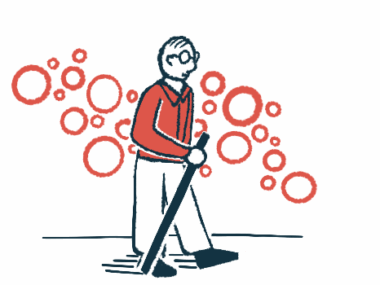Before cold agglutinin diagnosis took my breath away, bird-watching did
My disease hasn't dimmed my passion for watching birds soar about
Written by |

I have always enjoyed bird-watching. It’s easy to do when there are bird feeders just outside the back door — cardinals and blue jays fight, mourning doves strut about the lawn looking for seeds kicked off the feeders, while mockingbirds wait their turn. To see majestic raptors soaring above lakes and over mountains, however, that takes a little planning.
One February morning many years back when our children were still small, my husband announced he would have all the children responsibilities that Saturday so I could go to Lake Guntersville State Park to view bald eagles.
That morning was cold, with temperature in the lower 50s, but I didn’t worry about breathing the cool air as I do now. I hadn’t been diagnosed with cold agglutinin disease (CAD) yet. I hadn’t even heard of it. Now, when I tell people about this rare autoimmune hemolytic anemia, my elevator explanation is, “When my red blood cells become chilled, they clump together. Then, they dissolve. The disease makes me tired and subject to a variety of symptoms.”
On that day, I made it to a cliff’s edge and settled in. I nestled against a tall pine tree, breathing in the sharp turpentine-like scent all around me. Lifting my binoculars, I enjoyed the majesty of several juvenile bald eagles wheeling above the lake below me. Peace and serenity ruled the scene.
CAD changes my bird-watching routine
Nowadays, since my CAD diagnosis, I have to carefully plan my infrequent bird-watching expeditions.
Having CAD is tiring. One of the complaints often heard among people with CAD is that everything tires us out. We can walk from our bedrooms to our kitchens and sometimes need to catch our breath. I take shorter walks now instead of day-long hikes.
Being tired isn’t the only problem. Cool weather can exacerbate my symptoms so I have to plan to mitigate them as much as possible. I carry chemical hand and foot warmers along with warm gloves, socks, and shoes. These are necessary since my extremities are susceptible to acrocyanosis, a skin discoloration brought on from my blood cells breaking down. I also need a scarf to cover my throat, mouth, and nose. Warming the air before breathing helps prevent hemolysis, the beginning of hemolytic anemia. I also don’t go hiking alone, just in case I need someone to drag my carcass out of the woods.
My passion for bird watching hasn’t dimmed just because I’ve changed. And luckily, I don’t have to hike to see raptors. The school where my husband works is on a ridge that extends off the main slope of Gunung Baboko. Many times, I’ve ridden my motorcycle up that hill and seen beautiful pairs of brahminy kites circling over the valleys on either side of the ridge. Other times, a swoop of swifts race just above the meadow next to the school buildings.
Walking on a chill spring morning might be unlikely now, but enjoying the beauty of creation is not. And my spirit soars, just like the eagles.
Note: Cold Agglutinin Disease News is strictly a news and information website about the disease. It does not provide medical advice, diagnosis, or treatment. This content is not intended to be a substitute for professional medical advice, diagnosis, or treatment. Always seek the advice of your physician or other qualified health provider with any questions you may have regarding a medical condition. Never disregard professional medical advice or delay in seeking it because of something you have read on this website. The opinions expressed in this column are not those of Cold Agglutinin Disease News or its parent company, Bionews, and are intended to spark discussion about issues pertaining to cold agglutinin disease.






Leave a comment
Fill in the required fields to post. Your email address will not be published.